
Why work to reduce methane pollution?
Climate change doesn’t happen overnight, and neither will its solution. However, reducing methane emissions is one of the fastest and most effective ways of curbing climate warming in the short term. There are two reasons for this. First, methane is an extremely potent greenhouse gas. Second, methane does not last as long in the atmosphere as other pollutants such as carbon dioxide. This makes reducing methane emissions immediately a great way of tackling near-term climate warming.
The Methane Regulations
There are a number of federal initiatives aimed to reduce methane emissions from the largest industrial source: the oil and gas industry. Last December, the U.S. Environmental Protection Agency (EPA) finalized methane pollution standards for new and existing oil and gas facilities, which include gas wells, compressor stations, and storage tanks. This rule is a landmark step in reducing methane emissions from oil and gas operations of all sizes and will help protect public health and create jobs across the country.
Notably, this methane rule will set appropriate emissions monitoring requirements for wells regardless of size and require monitoring until a well is plugged. More operators will also be required to replace process controllers, used to regulate processes within gas equipment, with zero-emitting alternatives. Furthermore, the rule establishes the Super Emitter Program, which will require the EPA, third party monitoring companies, and operators to work together in identifying and fixing large emission events.
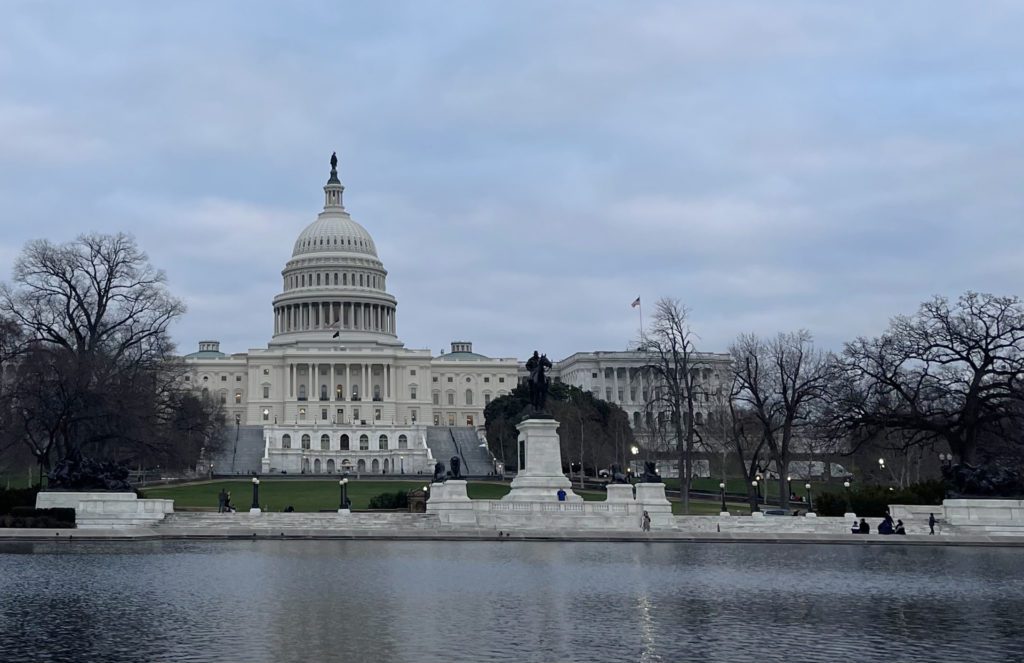
The Inflation Reduction Act (IRA) of 2022 also created the Methane Emissions Reduction Program (MERP), which aims to reduce methane emissions from the oil and gas sector. MERP establishes a Waste Emissions Charge (WEC) and revises greenhouse gas reporting requirements for the oil and gas sector, ensuring reported emissions are based on measured estimates. The WEC is a way of holding the largest polluters accountable for their pollution by levying a fee for excessive methane emissions. The WEC aims to work in tandem with the broader methane regulations; for example, operators that comply with methane regulations once they come into effect may be exempt from WEC fees.
Clean Air Council’s Involvement
Air pollution from the oil and gas industry affects everyone, especially frontline community members who are exposed to higher amounts of environment- and health-harming pollutants emitted by oil and gas infrastructure. The Council has worked with our members to prepare for public engagement opportunities. The EPA methane rule, for example, is the result of years of advocacy from the Council, our members, and our partners.
The methane rule, WEC, and the greenhouse gas reporting revision all involved a public engagement process that included a public hearing and comment period, among other opportunities. Clean Air Council supported member advocacy efforts by hosting educational webinars with partners and providing sample talking points and comments so members felt empowered to participate in the public engagement process. Most recently, the Council hosted a webinar on the WEC and supplied related comment materials.
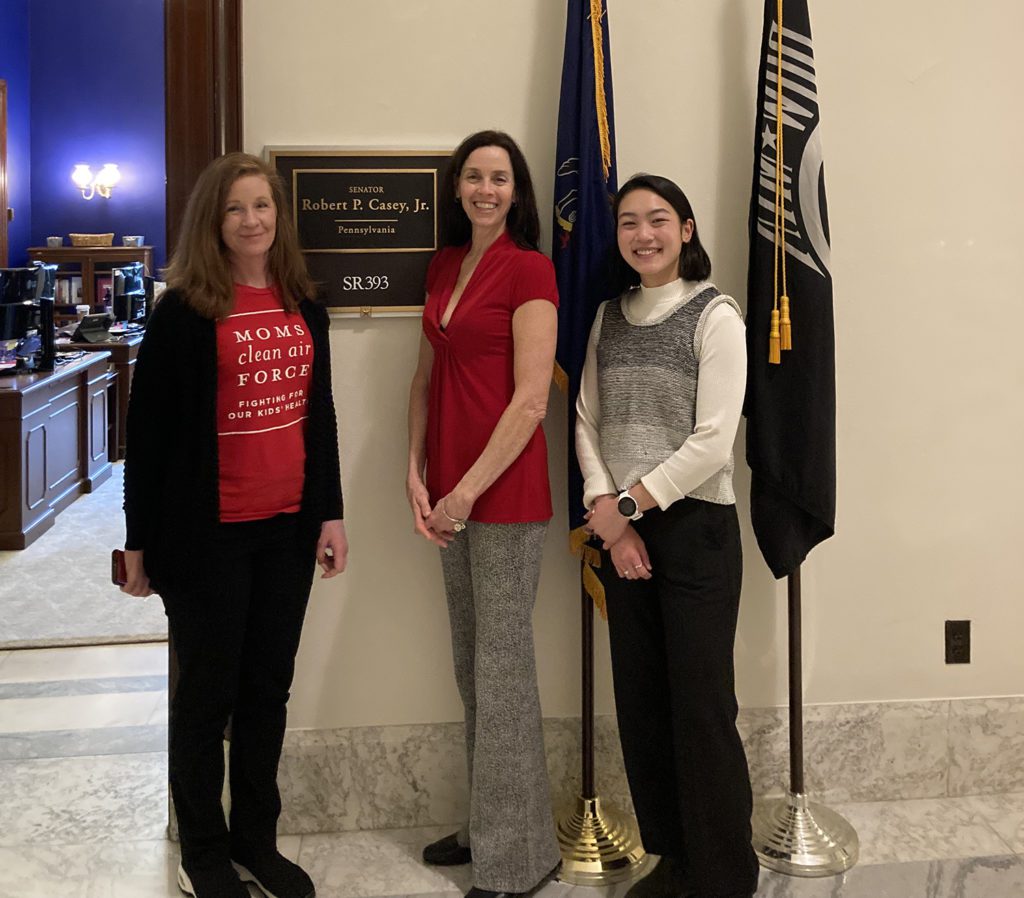
The Council has also engaged directly with elected officials to ensure they are knowledgeable about the rules and know what their constituents want. In March of 2024, staff traveled to Washington, D.C. to meet with Pennsylvania Senators Casey and Fetterman’s offices to discuss the benefits of the methane rule.
Work to ensure methane regulations are strong and protective does not end once a rule is finalized by the EPA. The EPA’s methane rule now enters the phase where each state determines how it will implement the rule via a State Implementation Plan (SIP), which the Pennsylvania Department of Environmental Protection (DEP) will need to draft and submit to the EPA. This is another opportunity for Pennsylvanians to speak up and ensure that the SIP is strong in protecting public health and the environment, as well as effective in rapidly reducing emissions.
Get involved
Even though some rules are finalized and various comment periods have closed, legislators still need to hear support for these policies from the people they represent. Members are always encouraged to contact their elected officials, at the state or federal level, to talk about why limiting methane is crucial. This support is especially important as bills continue to be introduced that would impact methane mitigation efforts. For example, House bill H.R. 1023 aims to effectively repeal MERP altogether. On the other hand, another recently-introduced bill would fund methane mitigation research. Ensuring that legislators know that their constituents care about meaningful methane reductions will protect these hard-fought regulations.
The ongoing SIP implementation of the methane rule will also create many opportunities in the near future for Pennsylvania residents to make their voice heard. Stay tuned for upcoming opportunities to show support for and influence an even stronger Pennsylvania-specific SIP that reduces as much methane as possible.
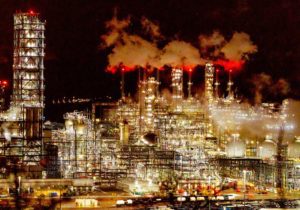
MONACA, PA (March 21, 2024) — Shell’s Beaver County plastics plant will no longer be able to operate under a construction permit. The Clean Air Act and Environmental Protection Agency (EPA) regulations require that a facility submit a Title V Operating Permit application within 12 months of commencing operation.
Despite starting operations in November 2022, the plant was still renewing its construction permit with Pennsylvania Department of Environmental Protection (PADEP). PADEP issued a letter on February 22, 2024, directing Shell Chemical Appalachia to submit a Title V Operating Permit application within 120 days. Once that application is submitted, PADEP must issue or deny the permit within 18 months.
“Since its opening in late 2022, Shell’s Beaver County plastics plant has been a serial lawbreaker, illegally emitting many tons of pollution into the air we breathe,” said Alex Bomstein, Clean Air Council Executive Director. “PADEP’s order to Shell to apply for a Title V Operating Permit for its plant sets up the public and our environment with better protection from harmful pollution, and allows the public to file comments and petition the EPA to object to any potential shortcomings in the resulting permit.”
Shell exceeded its 12-month rolling emission limits for volatile organic compounds (VOC) beginning in October 2022 through April 2023, carbon monoxide (CO) from February through March 2023, nitrogen oxides (NOx) from December 2022 through April 2023, and hazardous air pollutants (HAP) from December 2022 through April 2023. In addition to emissions violations, PADEP cited Shell for flaring violations from June 2022 through April 2023, and malodor violations from its wastewater treatment plant in January, February, and April 2023 – which included discharging benzene into the Ohio River.
Beaver County Marcellus Awareness Community (BCMAC) sent a letter to PADEP today requesting that once they receive Shell’s application it will be posted on their website so that the community has ample time for view. BCMAC will also ask that a public hearing be held to allow sufficient time for public comment.
“We’re working with local, regional and national partners who have the legal and technical experience with Title V permits to ensure that Beaver County residents will be accurately informed every step of the way,” said Hilary O’Toole, Executive Director of BCMAC. She continued, “We will be scheduling meetings and educational events throughout Beaver County to engage municipal leaders and community members.”
The PADEP must receive Shell’s Title V application by June 21, 2024.
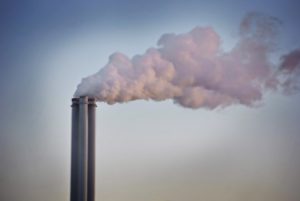
PHILADELPHIA, PA (February 7, 2024) – Responding to overwhelming scientific evidence, the U.S. Environmental Protection Agency (EPA) has acted to protect public health by lowering the annual standard for ambient air concentrations of fine particulate matter, commonly known as soot or PM2.5. These tiny particles, with diameters 30 times smaller than a human hair, can be absorbed through the lungs directly into the bloodstream, leading to respiratory and cardiovascular injuries and premature death. Growing evidence also links exposure to increased risk of dementia. EPA last reduced the standard to 12 from 15 µg/m³ over a decade ago, leading to considerable health improvements and corresponding economic benefits.
Matt Walker, Clean Air Council Advocacy Director, issued the following statement:
“Today’s announcement from the EPA is a significant win for public health and will allow millions of Americans to breathe easier. By reducing the annual National Ambient Air Quality Standard (NAAQS) by 25 percent, EPA will be saving tens of thousands of lives per year, protecting children, the elderly, and people in overburdened communities from lasting health harms. This standard will also save billions of dollars from associated health care costs and lost work days. In Pennsylvania, we anticipate substantial air quality improvements in the seven counties that are not in attainment of the new standard.
However, since there is no safe level of PM2.5 exposure, we call on EPA to soon further reduce the annual standard. Reducing the standard to the World Health Organization’s suggested 5 µg/m³ limit would save an additional 40,000 lives and billions more dollars. EPA should also reduce the 24-hour standard, which would mean less severe daily spikes in soot exposure. The U.S. can lead the way in further improving our air quality, resulting in thriving, healthy communities.”

WASHINGTON, DC (December 14, 2023) – Today, the United States Environmental Protection Agency (EPA) announced that vinyl chloride is a candidate for high-priority designation under the Toxic Substances Control Act (TSCA). The primary goal of TSCA is to regulate the introduction of new or existing chemicals into commerce to ensure that they do not pose an unreasonable risk to human health or the environment. If EPA finds vinyl chloride presents unreasonable risk, it must start a process of developing a risk management rule to eliminate all risks that it found to be unreasonable. Risk management may take many forms including, but not limited to, bans or partial bans, phase-outs, restrictions on manufacturing, processing, distributing, or disposing – including volume restrictions and prohibitions on release or discharge. The public will have the opportunity to comment on the proposed risk management rule.
Matt Walker, Clean Air Council Advocacy Director, issued the following statement:
“Clean Air Council is very pleased that EPA has selected vinyl chloride as a candidate for high-priority designation under TSCA. Vinyl chloride is a known human carcinogen and can cause other serious health harms. In communities that live in the shadow of petrochemical facilities, the harms from vinyl chloride exposure are compounded by exposures to other other toxic chemicals and stressors. EPA must consider these cumulative risks in its analysis. As the disaster in East Palestine, Ohio demonstrated, people living along rail lines used to transport vinyl chloride are in danger of significant exposures to this toxic chemical. It will be critical for EPA to evaluate these risks.”

WASHINGTON, D.C. (December 2, 2023) – The U.S. Environmental Protection Agency (EPA) has finalized methane pollution standards for new and existing oil and gas facilities that include gas wells, compressor stations and storage tanks. These updated environmental regulations will increase required air pollution inspections at oil and gas facilities while requiring widely available control technologies that do not emit climate-warming methane gas directly to the atmosphere. Methane has 87 times the global warming potential of carbon dioxide over a 20-year time period.
Additionally, this rule will require reducing smog-causing volatile organic compound (VOC) emissions as well as air toxic emissions like the known carcinogen benzene. The rule will also include a Super-Emitter Response Program that will provide information regarding air pollution incidents, and their resolutions, to impacted communities.
Joseph Otis Minott, Clean Air Council Executive Director and Chief Counsel issued the following statement:
“President Biden and the EPA are taking meaningful action with rules that set a strong foundation for cutting methane pollution from new and existing oil and gas operations. We look forward to supporting Governor Shapiro in tailoring these rules to ensure they adequately address the concerns of Pennsylvania residents near gas operations. As the second largest producer of fossil gas in the country, Pennsylvania has an outsized responsibility to cut as much climate-warming methane emissions from the gas industry as possible and better protect the health of people living near oil and gas operations.”
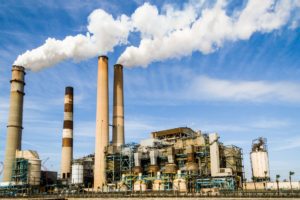
HARRISBURG, PA (November 22, 2023) On November 21, Governor Shapiro announced his decision to appeal the November 1 Commonwealth Court decision that declared the Regional Greenhouse Gas Initiative (RGGI) to be unconstitutional.
RGGI is a program established in 2005 that requires regulated power plants to acquire allowances for the carbon emissions they produce. Within the currently-participating states, RGGI reduces emissions from fossil fuel power plants and funds climate change initiatives with the collected fees. Proceeds from the program in Pennsylvania would go to the state’s Clean Air Fund, which can then be put towards efforts that reduce air pollution. By not implementing RGGI, Pennsylvania has already missed out on over $1 billion dollars in RGGI proceeds since January 2022 that would have gone towards air pollution reduction programs.
Executive Director and Chief Counsel, Joseph Otis Minott, Esq. issued the following statement:
“As the nation’s fourth largest emitter of carbon dioxide, Pennsylvania needs RGGI, an effective cap-and-invest program, to advance a commonsense energy plan that cuts climate pollution and ensures an equitable energy transition and the jobs that come with it. The Governor’s appeal gives us a crucial chance to participate in this program and secure a clean energy economy for Pennsylvania. The Governor’s diverse RGGI stakeholder group reached the consensus that such a cap and trade program for the power sector would be critical for generating the funds needed to support the state’s clean energy transition. RGGI is the clear choice for meeting the working group’s goals and Governor Shapiro’s criteria of supporting climate action, clean energy job creation, public health protection, and energy affordability.”
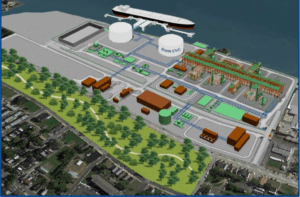
PHILADELPHIA, PA (November 3, 2023) – The Philadelphia LNG Export Task Force approved a report on Wednesday that did not address concerns raised by potentially affected residents, stressed economic benefits of building an LNG (liquefied natural gas) export terminal that are not aligned with LNG market predictions, and called for changes in state and federal law to support the LNG industry. The report also failed to address multiple obstacles discussed by Representative Joseph C. Hohenstein, which could render any LNG export terminal in Southeast Pennsylvania legally, technically, and economically infeasible, including the surge in the supply of LNG for export and the anticipated decline in European demand.
In Fall 2022, the Pennsylvania General Assembly voted to form the Philadelphia LNG Export Task Force to address the “existing obstacles, economic feasibility, economic impact and the security necessities” associated with turning the Port of Philadelphia into an LNG export terminal. At the time, the Council, joined by several community and environmental groups, asked that the Task Force include local community members instead of only governmental and industry representatives. The Task Force did not listen to this request. Although a 2016 Penn America report analyzed building an LNG project on the Chester waterfront and the company had engaged in related clandestine discussions with elected officials in Chester and Harrisburg, even some Task Force members were at first unaware they would be primarily evaluating the Chester location rather than focusing solely on Philadelphia.
Chester residents, who have long fought for environmental justice, as their families are sickened by a concentration of polluting industries, have opposed any potential new industrial facility and the overall lack of transparency. Several community leaders were denied the opportunity to speak at the Task Force’s April meeting focused on security concerns. In August, residents showed up in force to a public hearing in Chester to unequivocally state that LNG and other harmful industries were not welcome. They stated that they are unwilling to pay the health cost from increased pollution, endure the risk of catastrophic explosions seen at other facilities, or accept the destruction of over 800 homes and community institutions to build a buffer around the site.
Joseph Otis Minott, Esq., Clean Air Council Executive Director and Chief Counsel, released the following statement:
“Cramming a dangerous LNG export terminal into our Southeastern Pennsylvania riverfront risks the health and safety of many surrounding neighborhoods, and the financial stability of our region.The terminal would lock the region into dirty and outdated fossil fuels for decades, further fueling the climate crisis when we know we need to be cutting climate pollution as much as possible. Simply put, the LNG Task Force Report is gas industry marketing propaganda that is out of touch with the community’s priorities and economic realities. The Council lauds Representative Hohenstein for consistently seeking transparency from the Task Force and championing public input in the conversation.”

HARRISBURG, PA (November 2, 2023) – In 2020, the recommendations of Pennsylvania’s 43rd Statewide Investigating Grand Jury released a report on the systemic problems of the unconventional oil and gas industry. The Grand Jury made a series of reasonable and easy-to-implement recommendations that would better protect the health, welfare and quality of life of Pennsylvanian residents. Despite the recommendations of the Grand Jury, the Pennsylvania Legislature has done little to implement the Grand Jury recommendations.
Today, Governor Shapiro is moving forward in implementing the Grand Jury Recommendations by instructing Pennsylvania’s Department of Environmental Protection (DEP) to draft regulations to protect Pennsylvania residents and the environment from the chronic pollution emitted by the gas industry.. In today’s press event with CNX Resources, the Governor will highlight new public health and environmental protections from the gas industry. Residents throughout Pennsylvania have been demanding protections from gas infrastructure for years while the gas industry has opposed them.
The Governor has instructed the DEP to adopt regulations that will require the gas industry to disclose all the chemicals used in drilling, set stronger standards for dealing with drilling waste and assure the safety of gathering pipelines. Governor Shapiro also committed to improved standards to reduce climate-changing methane emissions from the gas industry which is a major contributor to climate change.
In Response, Joseph Otis Minott, Esq., Clean Air Council Executive Director and Chief Counsel, released the following statement:
“Clean Air Council strongly supports Governor Shapiro’s decision to move forward in implementing the commonsense public health and environmental standards recommended by the 2020 Grand Jury to better protect Pennsylvania residents from oil and gas operations. For far too long, the gas industry and too many elected leaders have shown a disregard for the harm the industry is causing to residents’ health and the environment. It is past time that our leaders adopt protections from this industry.”
“We applaud Governor Shapiro’s leadership in recognizing the need to further reduce methane pollution from the gas industry, and look forward to supporting him and the DEP in tailoring the forthcoming federal rules to ensure they address the concerns of Pennsylvania residents affected by the gas industry.”
The Council encourages the Governor to additionally propose regulations to require setbacks that better protect residents and our natural resources from harmful gas infrastructure. DEP has the legal authority, scientific evidence, and public support needed right now to adopt setback distances that prevent this infrastructure from being built too close to our homes, schools, hospitals, streams, and wetlands.
To demonstrate how the industry needs to do more, the Governor announced a partnership with the gas company CNX Resources, which agreed to disclose its chemical use and better monitor its emissions, something that residents in areas affected by fracking have been demanding for years.

NORTHUMBERLAND COUNTY, PA (October 20, 2023) – This week, Texas-based Encina withdrew a critical application for a permit that it needs to build a plastic waste processing facility in Point Township, Northumberland County. The facility, which Encina wants to site on the banks of the Susquehanna River, would use an energy-intensive process called pyrolysis to break down 450,000 tons of plastic waste each year into chemicals such as benzene, toluene, propylene, and xylene—some of which are carcinogenic—as well as residual toxic waste. Encina has not disclosed details about its unproven pyrolysis process, but it is poised to be a major source of harmful pollution for surrounding communities.
Before Encina begins construction, it must receive a National Pollutant Discharge Elimination System (NPDES) permit for discharges of stormwater to prevent construction runoff from polluting the Susquehanna River. This week, Encina withdrew its permit application after an 11-month review from the Pennsylvania Department of Environmental Protection (DEP) found that Encina’s application contained over a dozen major deficiencies and used “wholly inadequate” design and modeling approaches. This permit withdrawal represents a major setback to Encina, which must now redesign its construction plans and restart the permitting process.
“Encina’s proposed facility uses unproven, undisclosed plastics technology that will produce carcinogenic and highly flammable chemicals. The fact that Encina has proven unable to comply with basic permitting requirements is a tremendous red flag for this project,” said Joseph Otis Minott, Clean Air Council’s Executive Director and Chief Counsel. “Local and state governments must continue to scrutinize Encina’s permit applications to protect residents and the environment from the dangerous impacts of this project.”
This permit withdrawal follows a long series of setbacks to Encina’s proposed facility. This summer, DEP denied the Act 537 sewage facilities plan amendment required for this project’s wastewater treatment system. And in March 2023, the Point Township Zoning Board denied Encina’s request for a zoning variance to exceed height limitations after hearing comments from local residents.
“This is just another example of one of our major concerns,” said Sandy Field, member of Save our Susquehanna. “They don’t seem to know what they’re doing. When members of our community ask technical questions about the process, they say it’s proprietary or give evasive non-answers. Now it seems that DEP also wants details that Encina can’t provide and this is just for the permit to handle stormwater during construction. The way they seem to overreach with no technical expertise is very concerning to us. It seems like they’re just winging it.”

Reductions in cross-state smog-forming emissions will go forward
Environmental and health groups celebrated an important step toward clean air after a federal appeals court today denied the requests of states and industry groups to block the Environmental Protection Agency’s (EPA) “Good Neighbor Rule.” The rule, designed to address cross-state air pollution and the adverse health effects of ozone pollution, also called smog, will improve public health and air quality.
The Good Neighbor Rule, a vital measure aimed at reducing cross-state air pollution, requires coal-burning power plants and other high-polluting industrial sources to decrease emissions that contribute to smog. Polluters in upwind states like Indiana and Ohio that had previously avoided implementing pollution controls are slated to reduce their contributions to hazardous smog levels in downwind states like Connecticut and Wisconsin.
“The court’s refusal to block this protective air rule serves as a critical step towards holding upwind polluters accountable for their contribution to cross-state smog,” said the coalition of health and environmental groups defending the rule. “We remain committed to fighting for cleaner air and a healthier future, ensuring that polluters are held responsible for jeopardizing air quality.”
The federal appeals court’s decision to reject the stay request is a triumph for communities striving to combat the health risks posed by air pollution. EPA estimates that the Good Neighbor Rule, when fully implemented, will prevent more than a million asthma attacks annually and at least a thousand premature deaths. This rule will also improve the health of forests and waterbodies harmed by ozone and its precursor pollutants.
“This court decision marks a crucial step in our ongoing battle to hold upwind polluters accountable for exacerbating cross-state smog pollution,” said Earthjustice Attorney Kathleen Riley. “With more than 127 million people residing in regions plagued by harmful ozone levels, the Good Neighbor Rule protects public health. Earthjustice will keep fighting to ensure that this and national air quality rules truly protect public health.”
The U.S. Court of Appeals decision for the D.C. Circuit is notable after other courts blocked a related rule from going forward in certain states. With support from the coalition of environmental and health organizations, EPA has consistently argued that all challenges to these national protections should be heard in the D.C. Circuit, the court with experience reviewing prior Good Neighbor rules.
Smog, a harmful form of air pollution generated by vehicles, factories, and power plants, leads to asthma attacks, heart and lung diseases, and premature deaths nationwide.
The Good Neighbor Rule is just one necessary step to protect people from the adverse health impacts of air pollution. Recent studies show that the national standards for particulate matter—soot—and smog- are far too weak to protect people from premature death, lung cancer, reproductive harm, and cardiovascular disease. This year, the EPA proposed a new standard for soot, but it’s not nearly as strong as scientists and doctors say it needs to be. Stronger soot and smog regulations would save tens of thousands of lives.
A coalition of environmental and health groups has defended the Good Neighbor Rule in court. The coalition includes the Environmental Defense Fund; Citizens for Pennsylvania’s Future, Clean Air Council, and Clean Wisconsin represented by the Clean Air Task Force; and Air Alliance Houston, Appalachian Mountain Club, Center for Biological Diversity, Chesapeake Bay Foundation, Downwinders at Risk, Louisiana Environmental Action Network, Sierra Club, Southern Utah Wilderness Alliance, and Utah Physicians for a Healthy Environment, represented by Earthjustice.

